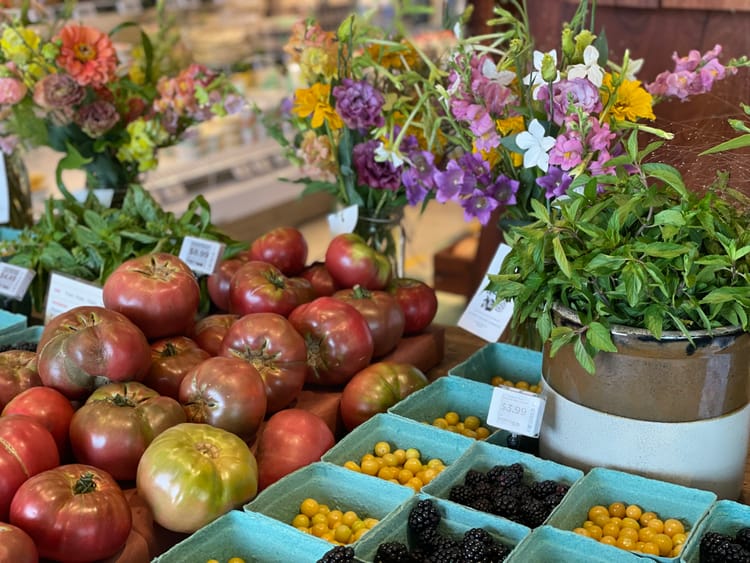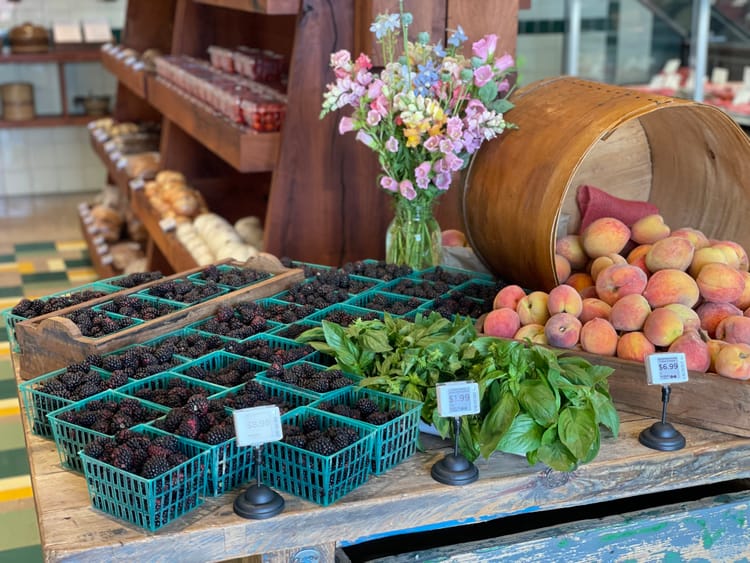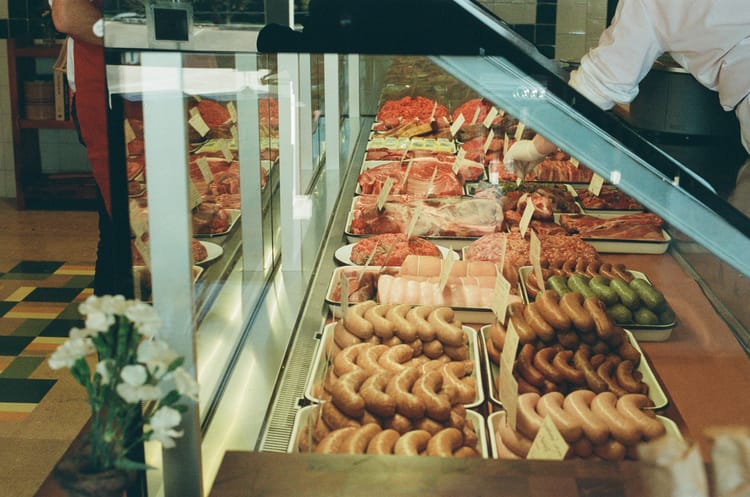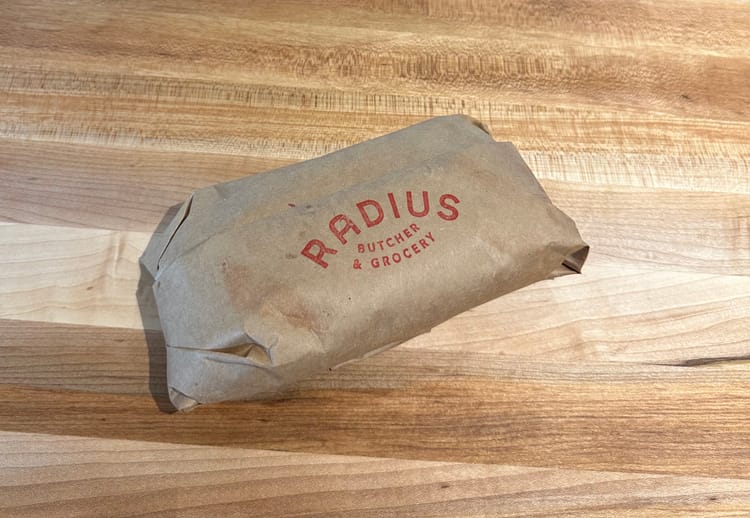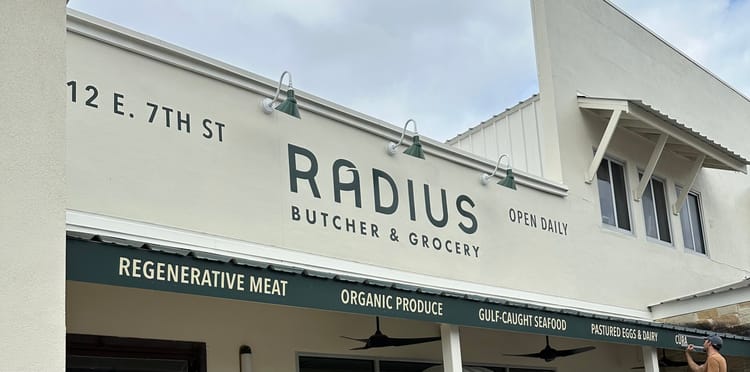November Update
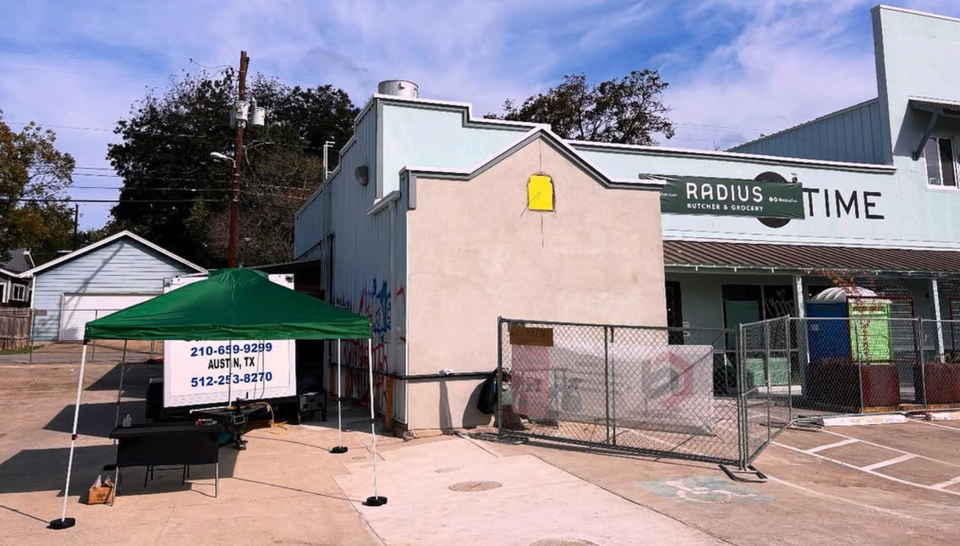
Thanksgiving is a wrap, next up winter holidays! Here are the latest and greatest updates from November.
Winter Holiday Pre-Orders
Winter holiday pre-orders are now open! Get your holiday centerpieces from a local farm sourced by Radius. We have grass-fed and -finished wagyu beef from Peeler Farms, pastured pork from Peaceful Pork, grass-fed and -finished lamb from Pure Pastures and Capra, pastured chicken from Greener Pastures, and caviar from Minamoto. Plus fresh baked local desserts from Texas French Bread, Baked from Scratch ATX, and Pie Jacked, and other specialties like local honey, seven spices hot cocoa, truffles, and more.
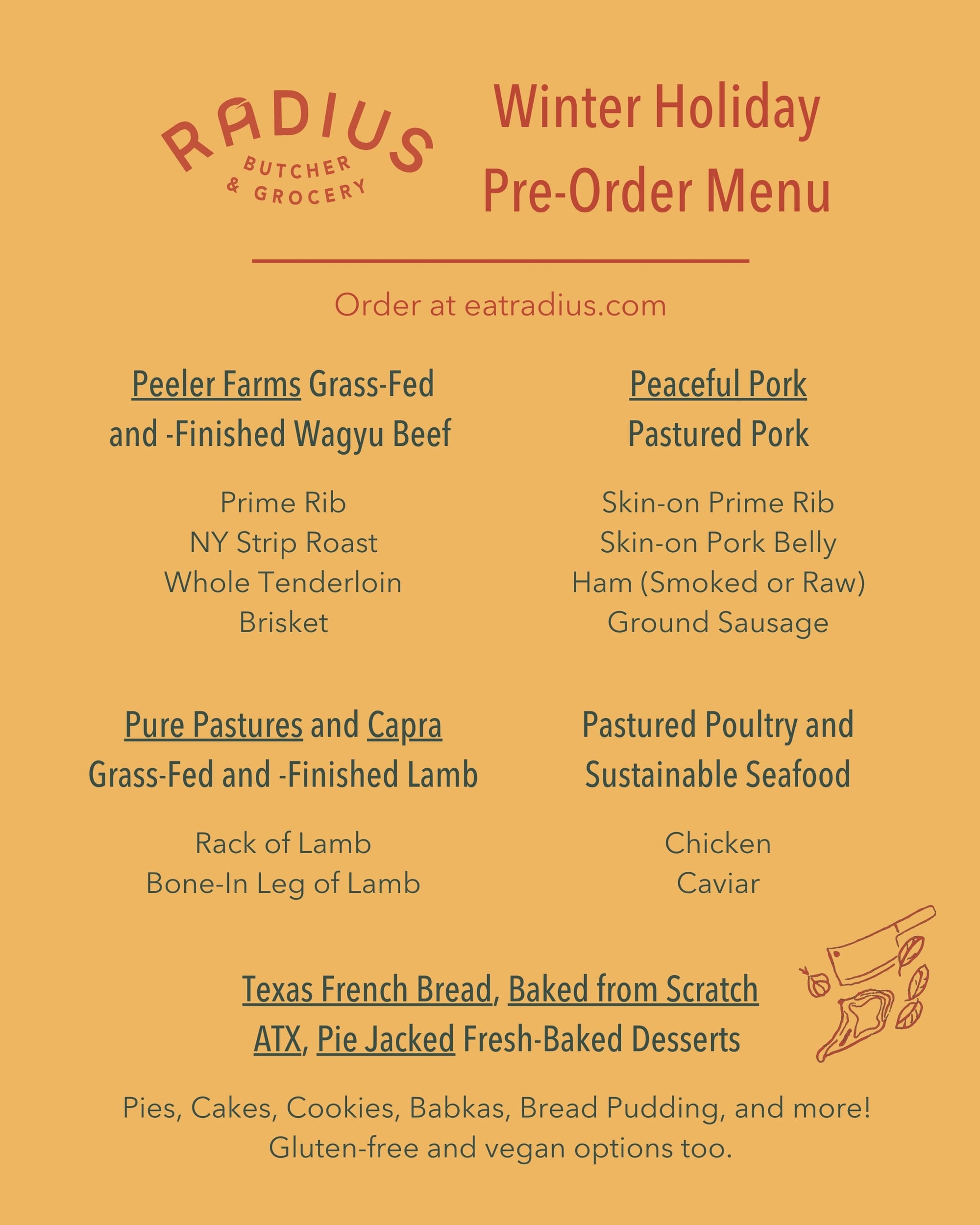
Visit the order page and select a pick-up window between Dec 21 and Dec 30 to see the full menu of offerings. Pick-ups will be at Radius at 1912 E 7th St. If you have any order requests or questions, reach out to us at support@eatradius.com.
Thanksgiving Wrap-Up
Winter holidays will be our second round of pre-orders following our first round of Thanksgiving turkeys and pies. Thank you so much to the folks who ordered items and came to the shop. It was great to meet so many friendly faces and excited future customers! As our first real event, it was very fun and… very chaotic.
Local food system supply chains are unpredictable, and we experienced that right away with turkeys. As described in our October update, unfortunately our turkey farmer lost all of his medium sized turkeys (15 - 18lbs) to a bobcat. Of course, those were the most ordered turkey sizes. So we had to scramble to find another local turkey farmer, and fortunately the Platt family from Behind the Oaks was able to step in. It gets worse — our primary turkey farmer also oversold his turkeys to his other customers, and ended up telling us the day before delivery that we would be 25 turkeys short. Whew. Deep breaths. That meant we had to get even more turkeys from Behind the Oaks, but we still needed 14 to fill our orders. In the end we got 14 organic Mary’s turkeys from a local distributor, Farm to Table TX, to make sure our customers weren’t left empty handed. Those Mary’s turkeys are raised in California; clearly not local and clearly not aligned with the Radius ethos. Although the Mary’s turkeys were a small percentage of our total orders, this does not match our sourcing philosophy. We want to be transparent when we fail to live up to our own standards, and learn from the experience.
There’s a food system debate between locale and local. Is it better to buy a product where it is most optimally raised (locale) or better to buy close to you no matter what (local)? Should we eat grass-fed beef from New Zealand, or grass-fed beef from San Antonio? Should we eat Florida oranges all year round, or just in late winter when oranges are in season in Texas’s Rio Grande Valley? There are valid arguments on both sides. For locale, the argument is to farm products in geographies where they naturally grow best and then ship them to consumers across the world. We definitely understand this point of view. But we believe in local over locale for two main reasons.
First, because it encourages us to make the local system better rather than using national suppliers as a crutch. We will learn from our turkey shortcomings this year to make our local food system better. Next year, we won’t buy from just one local turkey farmer. We will spread our orders, support more farmers, and build a more resilient local food supply chain. We will ask local farmers to raise heritage breeds in addition to the standard broad breasted whites. These efforts benefit Radius plus all other local farm-to-table food businesses and farmer’s markets too. Commitment to local food forces us to build more relationships, make connections, deepen the community fabric, and strengthen the local food system as a result. These are the right incentives, even if it is difficult.
The second reason we believe in local over locale is to celebrate flavor and to celebrate differences in geography. We believe in culinary pluralism. The ability to eat blueberries all year because of a global supply chain that sources from Mexico, Chile, and California is a modern miracle. But those blueberries from Chile that take weeks or months to get from farm to shelf don’t taste like much. They were bred for transportability, not flavor. Because we can eat imported blueberries all year, we don’t eat much Texas-native fruit. But there are fruits that grow well here — favorites like figs, and also lesser known fruits like agarita berries. If we didn’t have the constant supply of global blueberries, there would be more effort put into cultivating figs, agarita, and other fruit that grow well in Texas. I’ll take just two months of Texas figs bursting with flavor over bland blueberries all year. These geographic differences in growing conditions lead to culinary diversity. This is why Mexican, Japanese, and Italian cuisines are so different. These cuisines highlight different techniques, but most of all they highlight ingredients attuned to their local geography. One homogenous global cuisine is a lot less exciting and a lot less flavorful than celebrating regional agricultural and culinary differences.
Constraints breed creativity. Creativity builds resilience and diversity. Buying local is a constraint, but the efforts are worth it.
Construction
The core structural components finished up in November — framing, electrical, mechanical, plumbing — and we are ready to start finishes! December will see millwork, tile, refrigeration, and maybe even paint 🤞 Here’s a video of the last November construction update:
We thought we might make a Christmas opening, but it would be a tight window and holidays are already chaotic, so we’re aiming for a mid-January opening. That means the next monthly update will probably (hopefully) include a specific opening date!
Sourcing
We had two awesome farm visits in November. The first was Mirasol in Dripping Springs and the second was the Refugee Collective in Elgin.
Mirasol is a regenerative farm, agricultural research center, and in the future will be a residential community and Auberge resort. The team behind Mirasol is dedicated to land stewardship and showing what is possible when we live and farm in harmony with the local geography. We think Mirasol will be to Central Texas what Stone Barns has been to Upstate New York in terms of researching and breeding agricultural products attuned to the local climate. Matt Welch, the Director of Conservation and Restoration, showed us around the farm and taught us about the produce they’re breeding. We got to taste “blue collards” — a cross between kale and collard greens that has the flavor of kale and the heat hardiness of collard greens. And we got to learn about their efforts to domesticate agarita berries; we think we might be able to have these “texas currants” at Radius next year! Mirasol is a perfect example of local over locale — because we won’t buy global blueberries, we are inspired to meet local farmers, invest in those relationships, and get creative with what is possible in Central Texas.
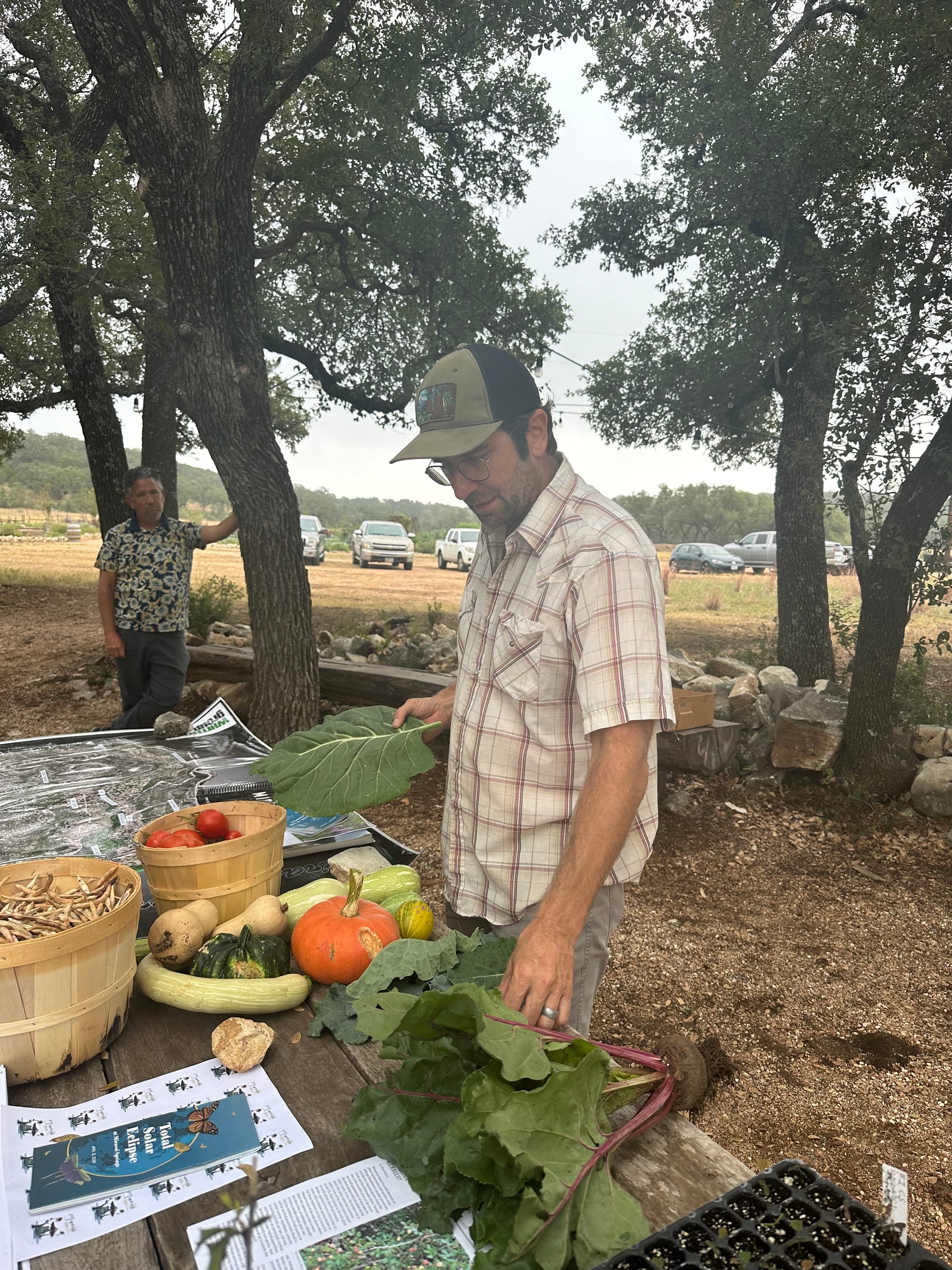
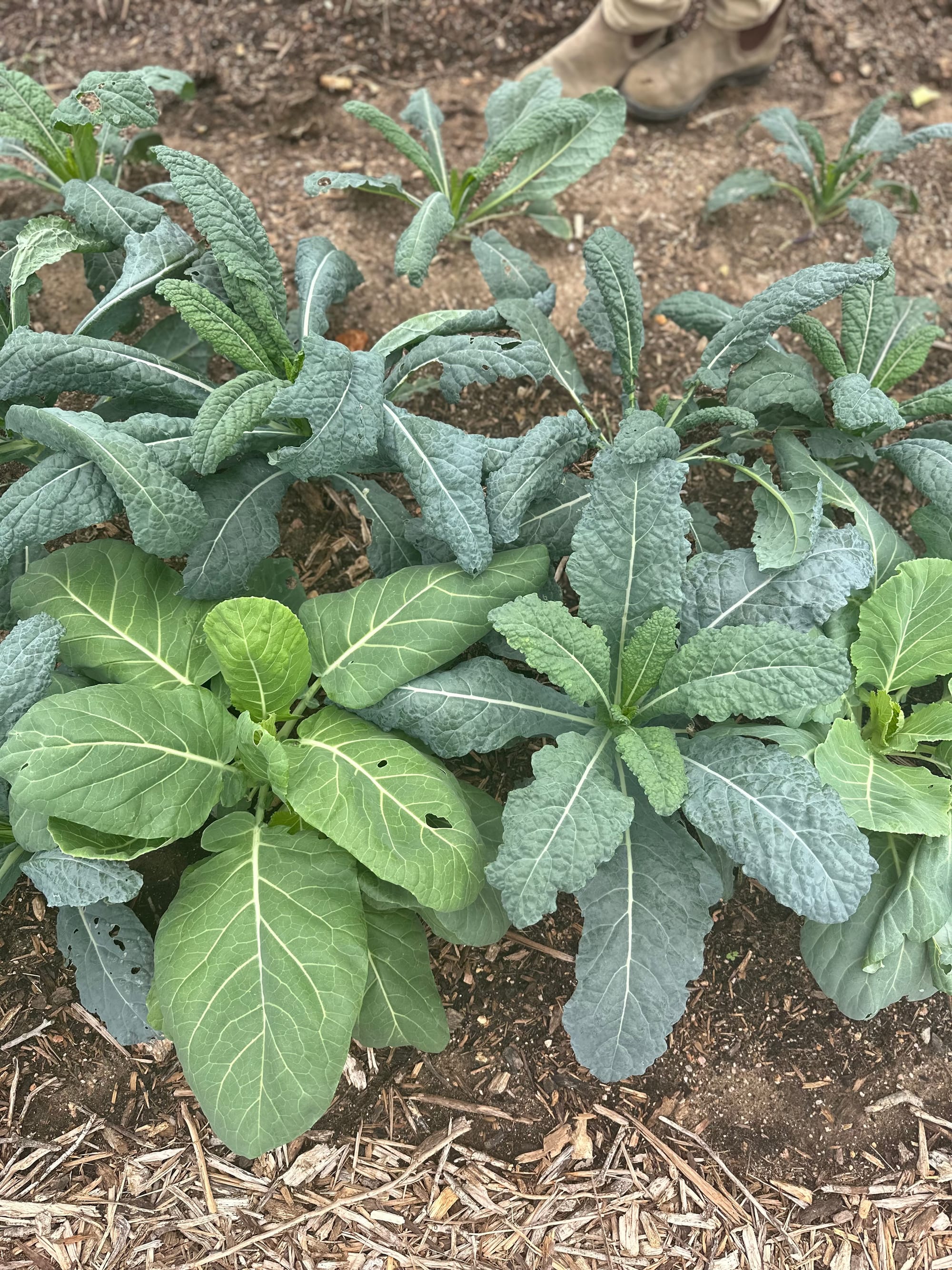
(Left) Matt Welch showing us what they grow at Mirasol. (Right) Blue Collards. You can see which exhibit more collard green traits (the green flat one on the left) and which exhibit more kale traits (the blueish ruffled one on the right)
The Refugee Collective employs refugees and immigrants in fair-wage, dignified work on a certified organic no-till farm. They raise many crops, both common American varieties as well crops more often found in Afghanistan, Syria, Burma, and more. Think American staples like cauliflower and peppers, plus international novelties like hibiscus leaves. For most Americans, hibiscus is mostly used for its flowers in tea. But in other cultures the leaves are cooked down just like any other leafy green, often with garlic and spices. The leaves themselves have a subtle tart hibiscus flavor. We’re excited to share both familiar and unfamiliar crops from the Refugee Collective with Radius customers! The farm also raises laying hens as part of their regenerative system. After a field’s crops are harvested, hens are brought in to eat up the scraps and fertilize the field. You can see in the photo below the hens picked this field clean, and the field in the background is up next once the vegetables have been harvested. We’ll offer the eggs from these well-fed hens at Radius as well!
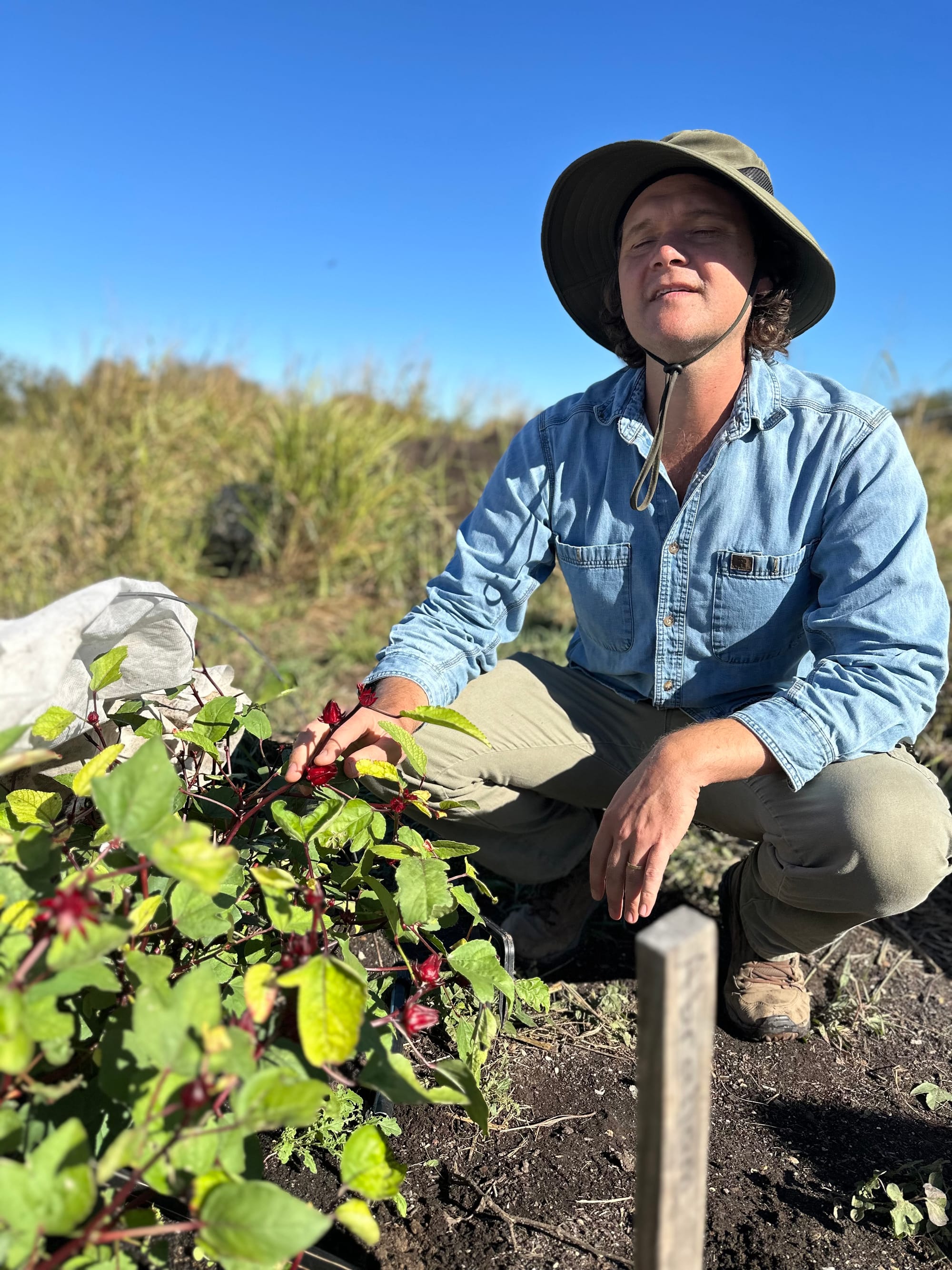
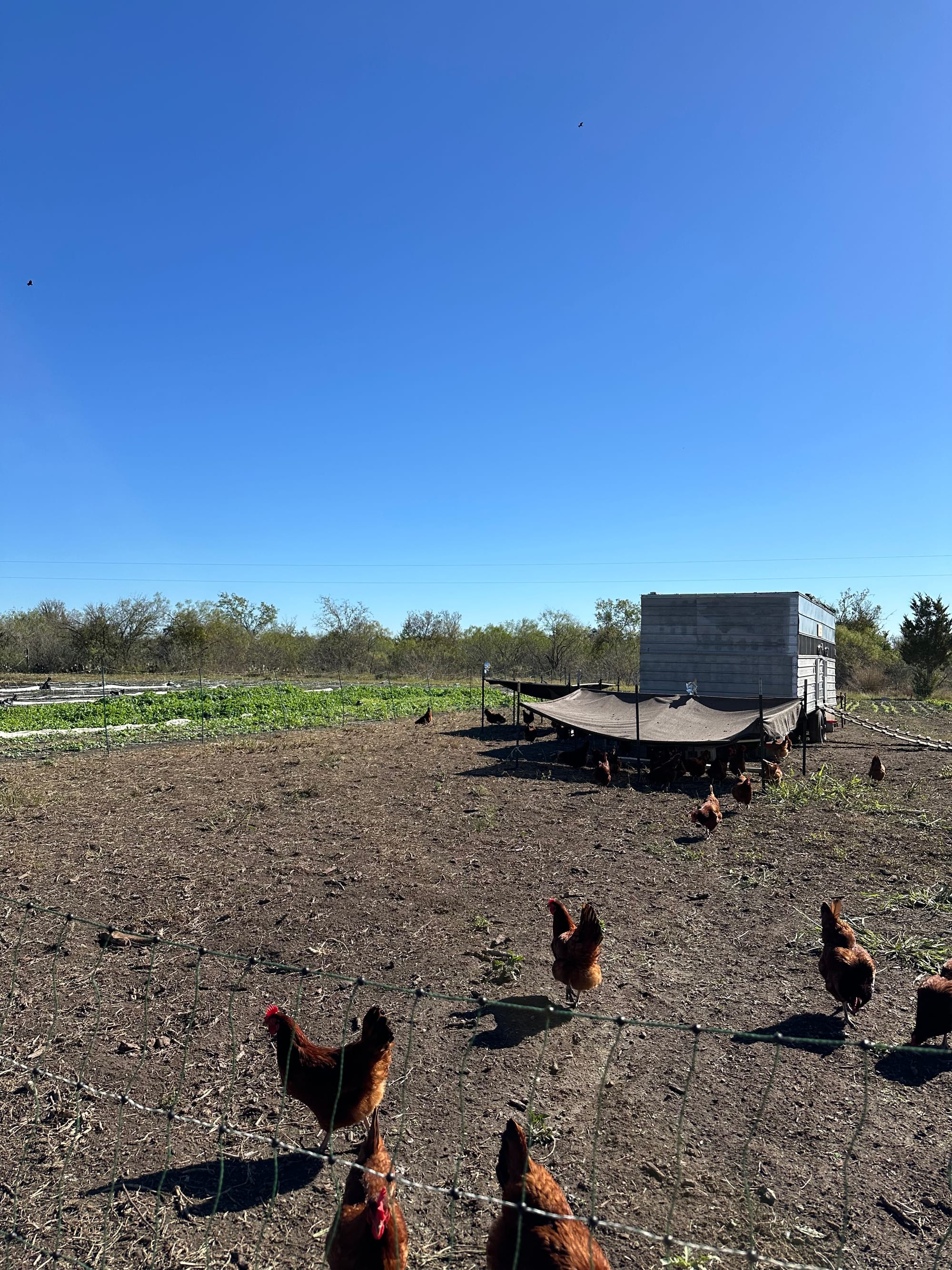
(Left) Matt Simon, Farm Director at The Refugee Collective, showing us hibiscus plants. (Right) Layer hens cleaning up the produce fields.
Team
We are very excited to welcome Kimberly Plafke as part of the Radius opening team! Kim will be responsible for production management and events. Production will focus on utilizing every aspect of the animal proteins and produce that come through our doors. We’ll make delicious and sustainable value-added products like sausages, smoked fish dip, chicken liver mousse, and so much more. For events, we plan to host weekly after hours dinners at the shop to showcase our ingredients and farm partners.
Kimberly hails from South Florida, but spent 15 years running restaurants and butcher shops in NYC. Kimberly doesn't specialize in a particular region or cuisine, but rather focuses on "utilization" and food science. They believe in finding a way to use 100% of a product- whether it's via ethical whole animal butchery, local sustainable seafood, or produce from soil healthy regenerative agriculture farms. This has given them the freedom to learn a variety of cooking styles from regions across the globe, while educating people on better food sourcing practices. They have also become an expert in whole animal production, such as sausage making, charcuterie, dry aging, and BBQ. They have appeared in numerous food related media, from Food Network to BBC to national cooking competitions and magazines. Kimberly takes their food very seriously, but does not take themself seriously AT ALL. Huge goofball, an infinite amount of dad jokes, and the stereotypical "crazy cat person".

